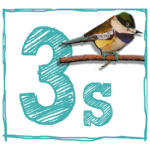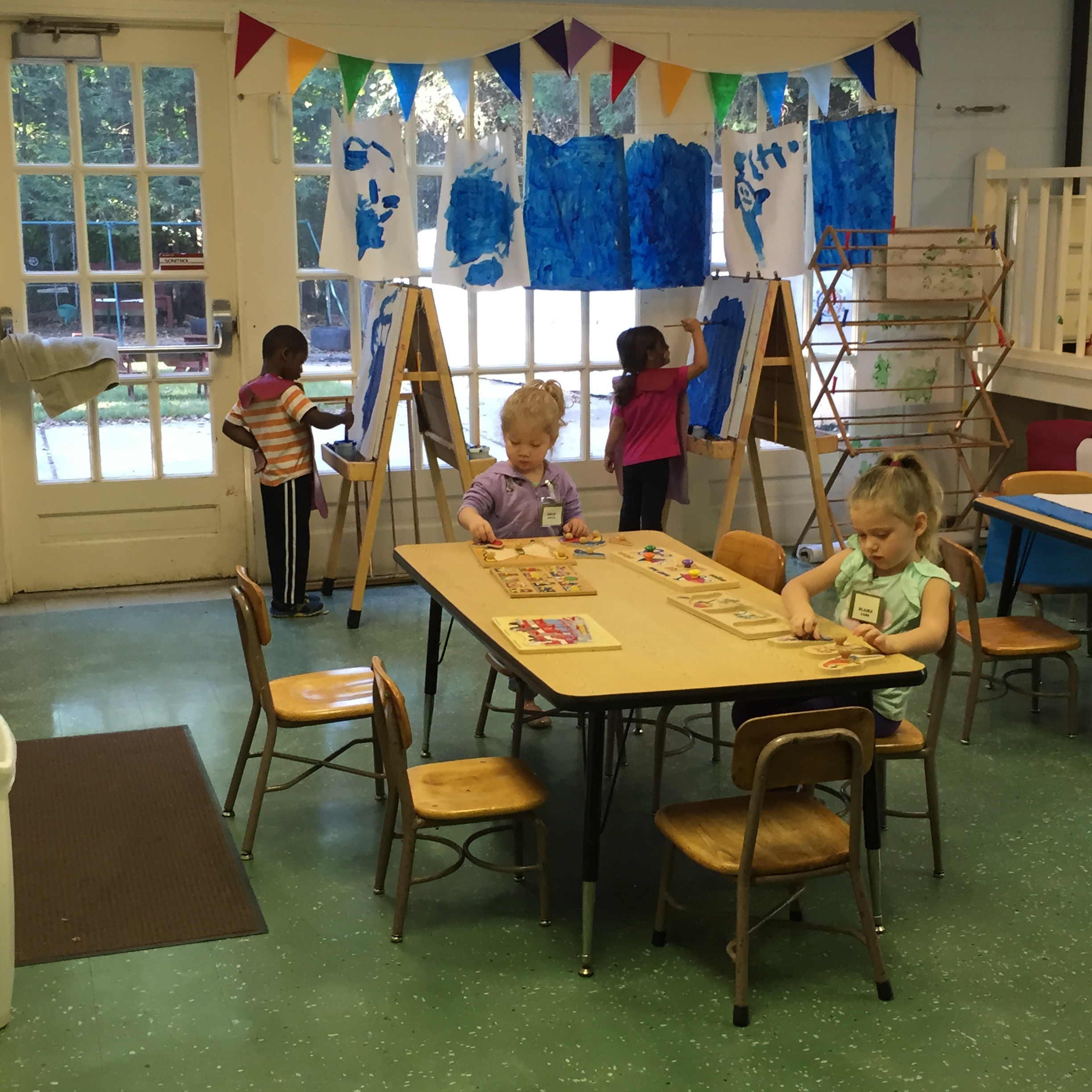7171 N Pennsylvania St, Indianapolis, IN 46240
A Cooperative Preschool Established in 1960

Tuesdays, 9 am – 12:30 pm
Thursdays, 9 am – 11:30 am
Age Requirement: 3 years old by September 1st
The goals for our three year olds fall into four categories of growth: social, emotional, intellectual, and physical. On any given day, you will see classroom activities that fall into these areas. As the “work” of children, play allows each child to select what they do, how long they do it, how they do it, and with whom they do it. Play encourages thinking, the use of language, problem solving, investigating, and organizing. Children use their minds, bodies, and social skills to respond to ideas and situations. Participating adults find opportunities to stimulate learning or interpret children’s play to help them grow.
9 am – 10:10, Free Play
Children are greeted by the teacher and invited to explore age-appropriate activities. The children are free to move between three rooms to play — Art Room, Block Room, and Climbing Room. A variety of activities are available in each of our three rooms including pretend play, cooking, painting at an easel, making music, climbing, building with large wooden blocks, working with manipulatives like play dough or practicing with scissors and crayons to strengthen fine motor skills, exploring different items in the sensory table, or looking at a book. Through these different experiences, children develop important social, motor, and academic skills. They are encouraged to work cooperatively, ask questions, and solve problems. Early math concepts are introduced through such activities as matching, puzzles, and geo-boards. The teacher and three participating adults assist children in transitioning from parallel play to social interaction with one another. The children are guided to communicate their wants, needs and feelings in a developmentally appropriate manner and to practice healthy conflict resolution. Free play is often extended on our longer Tuesdays, and on some days the entire day is spent outside doing activities, storytime and eating snack or lunch.
10:10 – 10:20, Clean Up
The children assist with picking up the toys that were available during free play. They then gather for quiet reading and look at books independently with soft music playing in the background as they prepare to transition to Circle Time.
10:20 – 10:35, Circle Time
During Circle Time, children learn songs, many of which encourage movement and participation. The teacher reads a story, which builds each child’s vocabulary and enhances pre-reading and language skills using methods such as exploring through questions, identifying rhyming words, and noting repetition and rhythm. Growth in listening skills and attention span is evident throughout the course of the school year.

10:35 – 11, Snack Time
The children, teacher, and participating adults gather for a small snack on Thursdays, the shorter class days. Snack time is not just about eating but also allows the children to sit and rest after a busy morning and to practice social skills such as sharing the snack basket and engaging in conversation. Snacks are provided by the school, and food sensitivities and allergies are accommodated.
11 – 11:30, Outdoor Play
After snack, the children are encouraged to dress themselves for outdoor play, with assistance as needed from the teacher and participating adults. As long as the temperature is above zero and it is not storming, children play outdoors on the school’s half-acre Nature Explore Certified playground every day. Children are free to play on all playground equipment and with toys such as tricycles, sand toys, sleds, sprinklers, rakes, and wheelbarrows. The teacher and participating adults are stationed around the playground to ensure a safe and fun outdoor time.
11:00 – 11:30 am, Lunch
During lunch on Tuesdays, the children sit together and socialize. One adult sits at each table to foster conversation and assist when necessary. Food sensitivities and allergies are accommodated.
11:30 – 12:30, Outdoor Play & Dismissal
On the extended day, Tuesday, the children get extra time exploring outside. The children are dismissed from the playground, and many caregivers stay and socialize with each other while play time continues.
Music
Our music teacher comes twice a month and leads the class in a music lesson. This is a very interactive session during which the children participate through movement and learn about pitch, rhythm, and tempo and frequently have the opportunity to play different instruments.